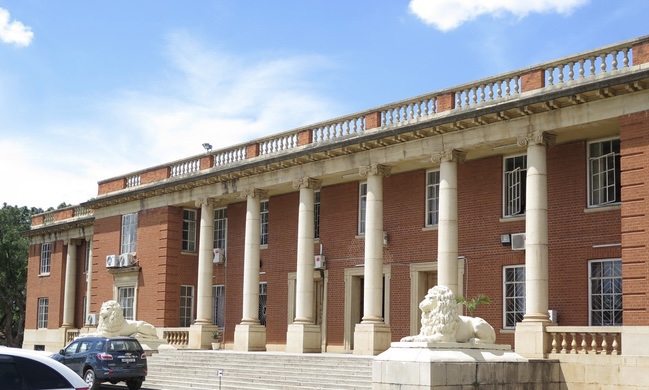The State has asked the Constitutional Court to uphold Zambia’s law on unnatural offences, arguing that the provision is not only constitutionally sound but also aligned with biblical principles.
This comes as the Zambian Civil Liberties Union (ZCLU) petitions the court to nullify Section 155(a) and (c) of the Penal Code, contending that the law is vague, ambiguous, and overly broad.
Appearing before a seven-member Constitutional Court bench led by Justice Palan Mulonda, ZCLU lawyer Mwanza submitted that the contested provisions fail to clearly define what constitutes “unnatural offences.”
Read more: Church bodies urge constitutional court to dismiss petition challenging same-sex laws
“We are challenging Section 155(a) and (c) of the Penal Code, Cap 87, on grounds that it is vague, ambiguous, and awkwardly drafted,” Mwanza said. “We pray this Honourable Court declares the provisions unconstitutional for being overly broad.”
In response, Acting Principal State Advocate Ndekela Mbao defended the law’s clarity, citing the case of Steven Katuka vs Law Association of Zambia and referencing Article 18(8) of the Constitution, which provides for fair legal standards.
“Section 155 implies that natural sex is between a man and a woman, with penetration occurring vaginally,” Mbao said.
“Anything outside that—including anal or oral sex—is considered unnatural. Even biblically, God created man and woman for procreation. How can that be fulfilled if two men engage in sex? Which parts would be used for creation?”
Mbao added that the court had reviewed what she described as “disturbing” images submitted by petitioners, arguing they demonstrated acts considered unnatural under the law.
Meanwhile, representing three church mother bodies—the Zambia Conference of Catholic Bishops (ZCCB), Evangelical Fellowship of Zambia (EFZ), and the Council of Churches in Zambia (CCZ)—lawyer Abednego Chuni of Equitas Legal Practitioners argued that such matters should be heard in the High Court since they involve the Bill of Rights.
Chuni said the term “unnatural offences” is not unique to Zambia, citing international case law from Canada to argue that a law must be impossibly vague to be ruled unconstitutional.
“That is not the case with Section 155,” he said, adding that the provision has existed since 1931 and fears of its arbitrary use remain hypothetical.
“This Honourable Court cannot invalidate the law based on hypotheticals,” Chuni said. “The petitioners have failed to prove the unconstitutionality of the section, and we pray it be upheld.”
In rebuttal, ZCLU’s Mwanza said the State’s interpretation further exposed the law’s vagueness and breadth. “If images of a man and woman in different sexual positions are considered unnatural, then what exactly makes sex unnatural? Is it the style?” he asked.
He argued that if oral sex is included in the scope of the law, then even consensual acts between heterosexual couples could be criminalized.
“If sex is only for procreation, then sex between unmarried couples or those using contraception could also be deemed illegal,” Mwanza said.
“Our challenge is not hypothetical,” he added. “We are asserting that the law violates the Constitution.”
Judgment in the matter is expected at a later date.
WARNING! All rights reserved. This material, and other digital content on this website, may not be reproduced, published, broadcast, rewritten or redistributed in whole or in part without prior express permission from ZAMBIA MONITOR.












Comments